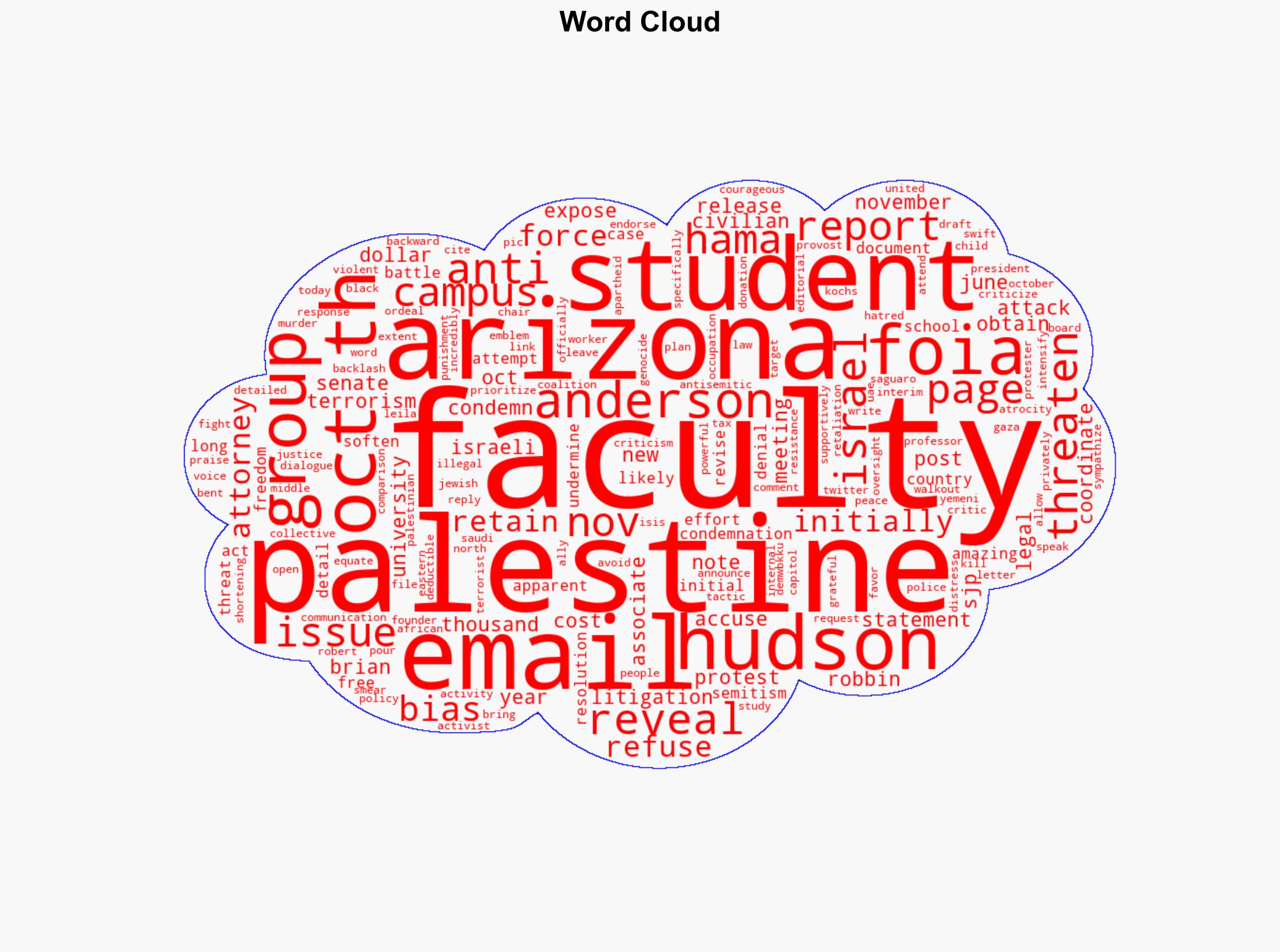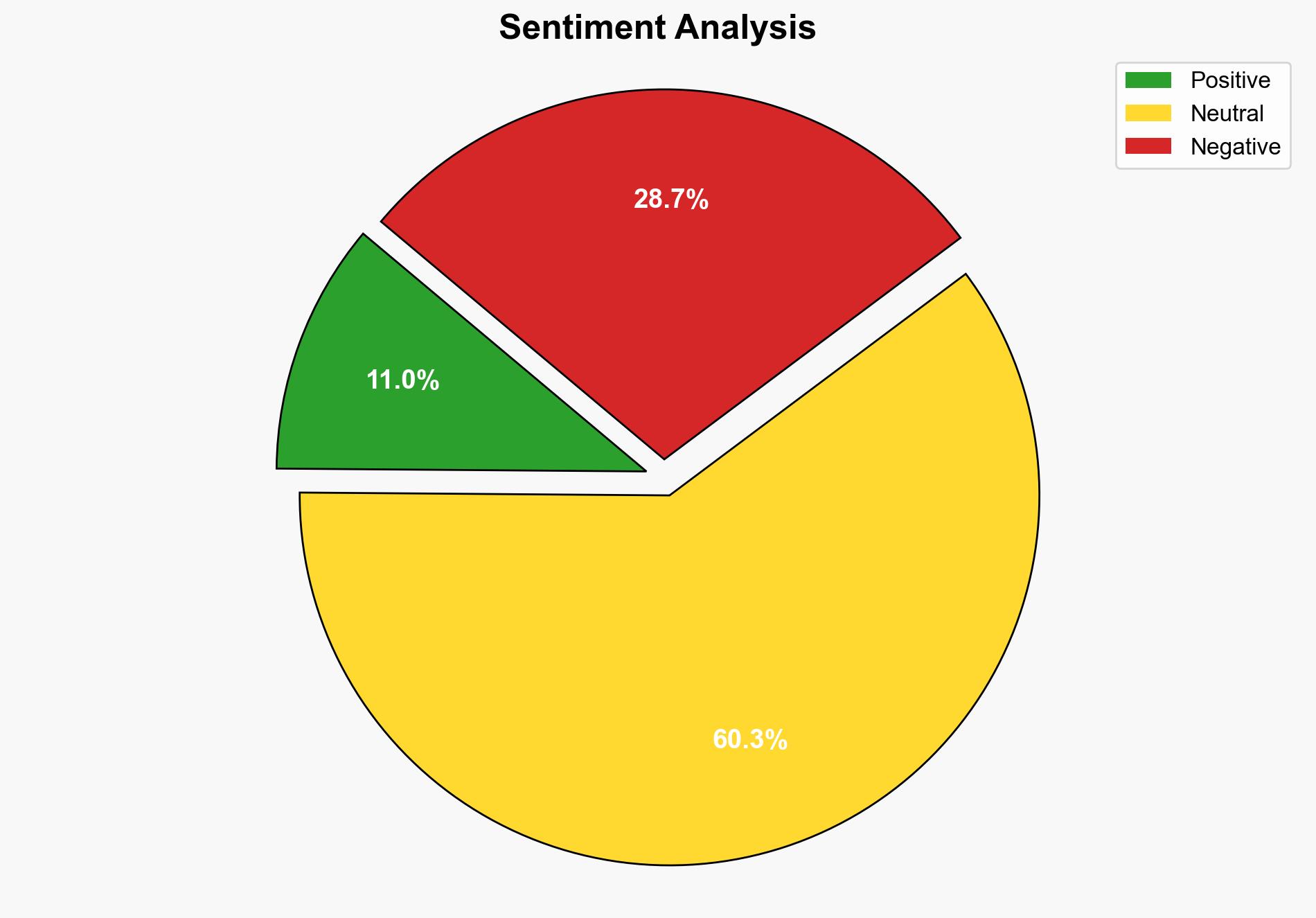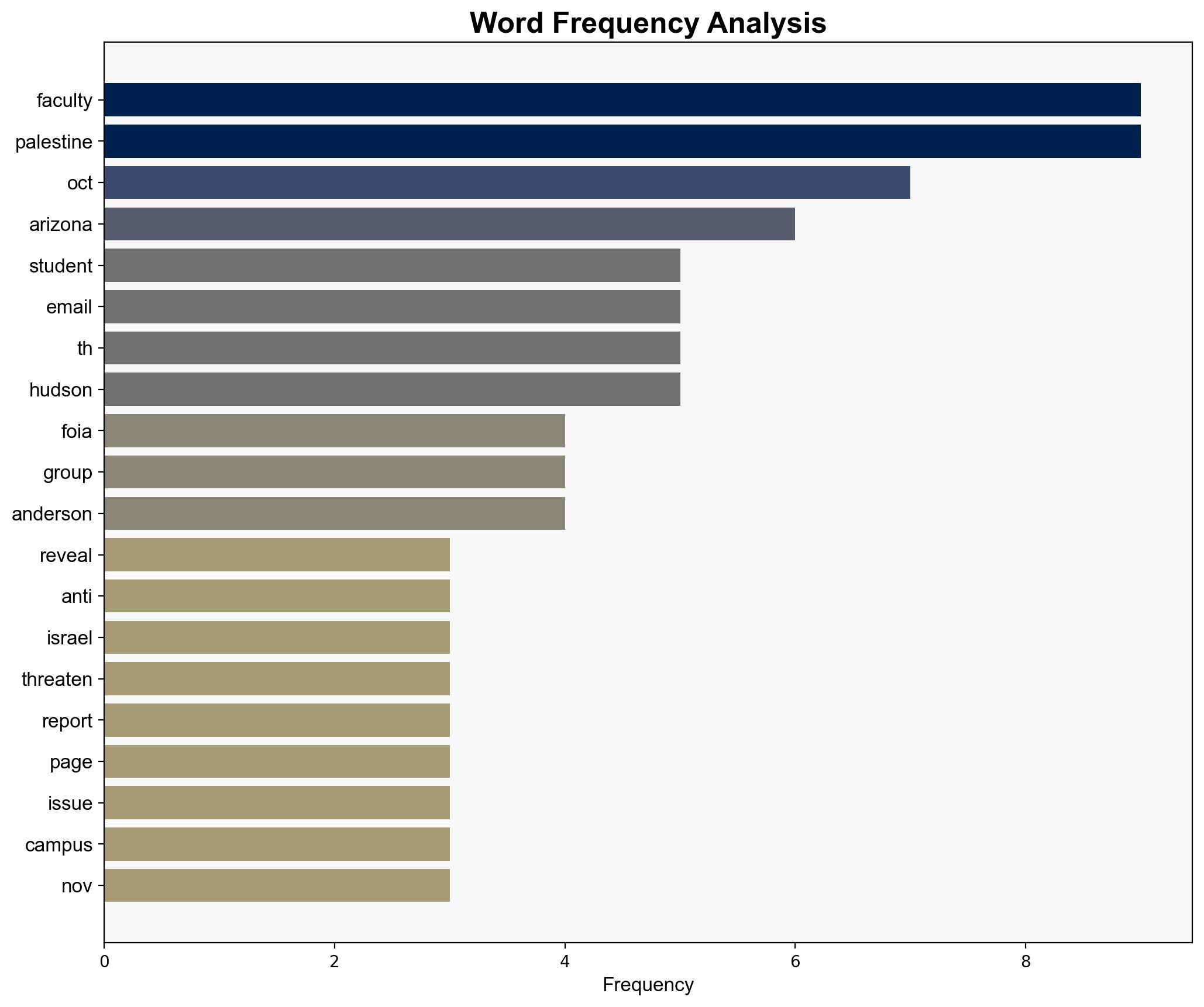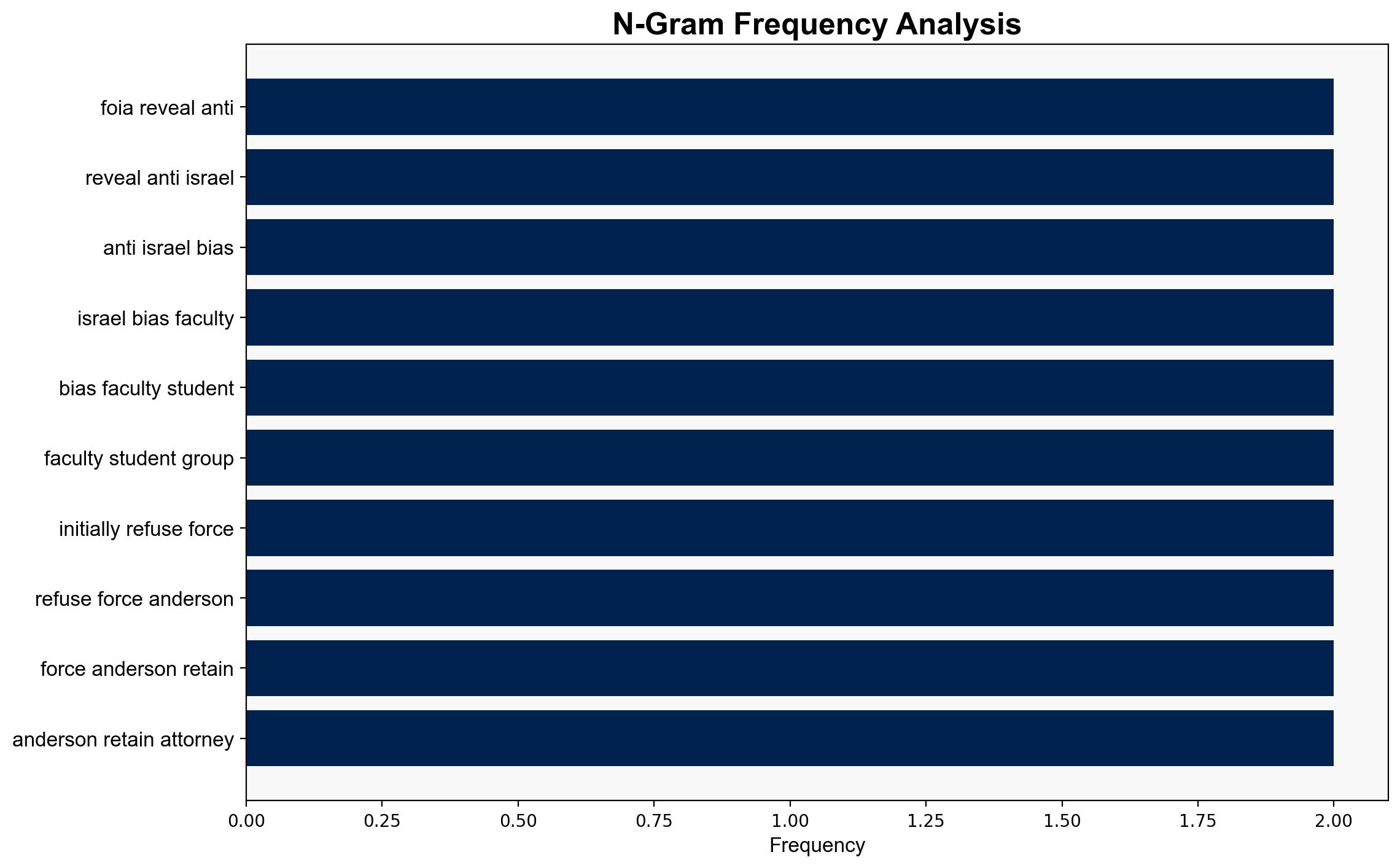FOIA Reveals Anti-Israel Bias in Faculty and Student Groups at U Arizona – Legalinsurrection.com
Published on: 2025-11-08
Intelligence Report: FOIA Reveals Anti-Israel Bias in Faculty and Student Groups at U Arizona – Legalinsurrection.com
1. BLUF (Bottom Line Up Front)
The intelligence suggests a significant anti-Israel bias within faculty and student groups at the University of Arizona, potentially influencing campus policies and communications. The most supported hypothesis is that these groups are actively coordinating efforts to shape university responses to Middle Eastern conflicts, particularly in favor of Palestinian perspectives. Confidence in this assessment is moderate due to potential biases in the source material. Recommended action includes monitoring university communications and engaging with campus leadership to ensure balanced discourse.
2. Competing Hypotheses
1. **Hypothesis A:** Faculty and student groups at the University of Arizona are coordinating to promote a pro-Palestinian agenda, influencing university policies and public statements.
2. **Hypothesis B:** The perceived bias is exaggerated or misrepresented by external parties, and the university’s actions are standard responses to complex international issues.
Using ACH 2.0, Hypothesis A is better supported by the documented efforts to revise statements and prioritize certain narratives, as revealed through FOIA requests. However, the lack of direct evidence of explicit coordination weakens this hypothesis slightly.
3. Key Assumptions and Red Flags
– **Assumptions:** Hypothesis A assumes that the emails and communications accurately reflect coordinated efforts rather than isolated incidents. Hypothesis B assumes that external reporting may have biases or agendas.
– **Red Flags:** The source’s potential bias and lack of context for the communications. The possibility of selective reporting or omission of exculpatory evidence.
– **Blind Spots:** Limited insight into internal university deliberations and the broader context of faculty and student motivations.
4. Implications and Strategic Risks
– **Patterns:** Increasing polarization on university campuses regarding Middle Eastern conflicts.
– **Cascading Threats:** Potential for increased campus tensions, protests, and reputational damage to the university.
– **Escalation Scenarios:** Escalation could lead to national media attention and involvement of external advocacy groups, potentially impacting university funding and partnerships.
5. Recommendations and Outlook
- Engage with university leadership to promote balanced and inclusive dialogue on Middle Eastern issues.
- Monitor communications and public statements for bias and ensure transparency in decision-making processes.
- Scenario Projections:
- **Best Case:** University adopts a balanced approach, reducing tensions and fostering constructive dialogue.
- **Worst Case:** Escalation leads to significant protests and reputational damage.
- **Most Likely:** Continued polarization with periodic flare-ups of tension.
6. Key Individuals and Entities
– Brian Anderson
– Leila Hudson
– Robert Robbin
7. Thematic Tags
national security threats, cybersecurity, counter-terrorism, regional focus





